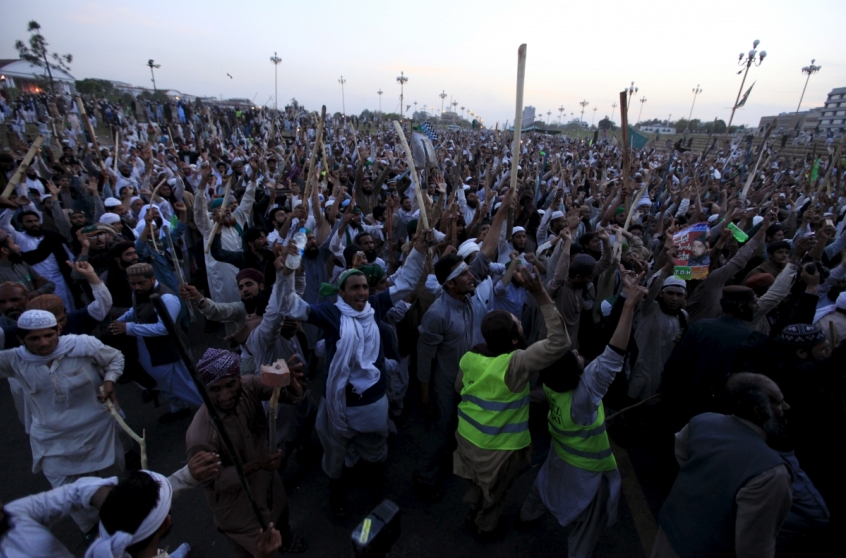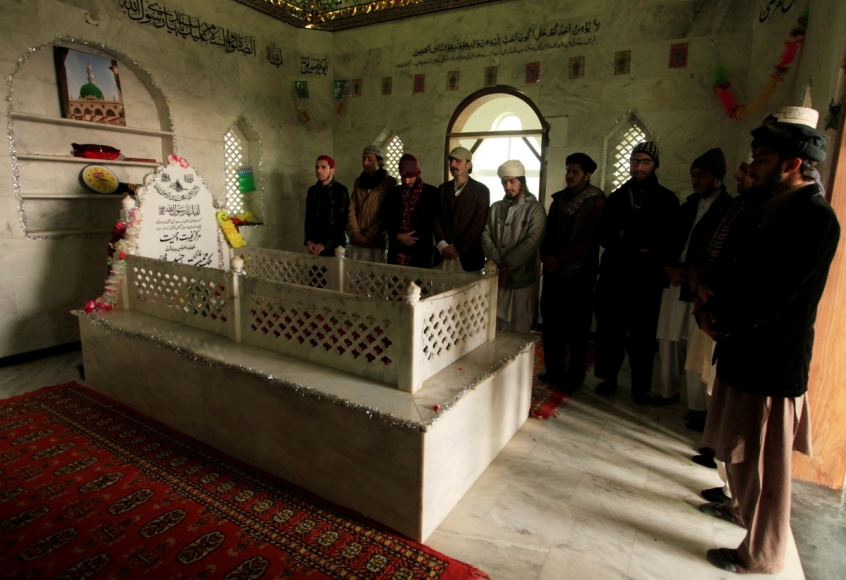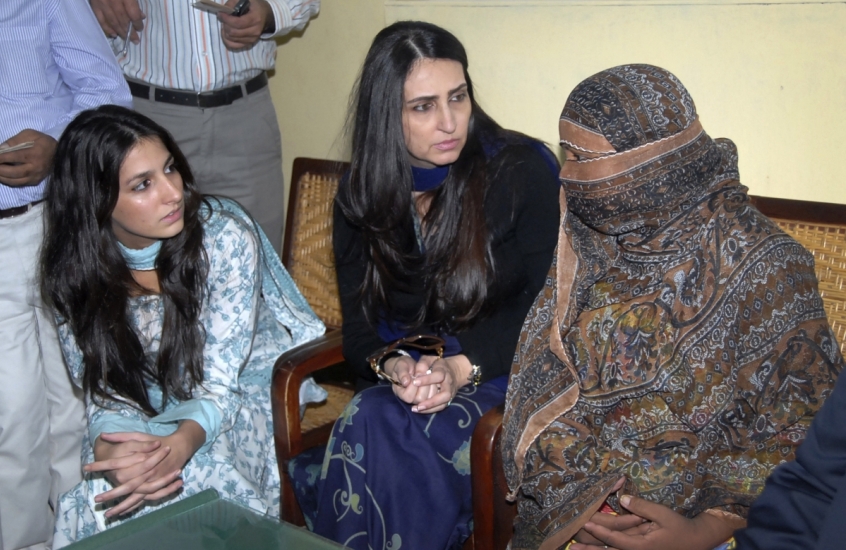
Pakistan's controversial blasphemy laws are set to be debated by a Senate committee after years of criticism over their misuse.
A senior official, senator Farhatullah Babar, told Reuters the Senate Committee on Human Rights will start discussions on the laws as early as next week, based on recommendations from a 24-year-old report.
He said it would be the first time in decades that any parliamentary body had considered a formal proposal to stop the abuse of the blasphemy laws.
At least 95 per cent of the Pakistani population is Muslim, and Islam is enshrined in the constitution as the state religion. The US Commission for International Religious Freedom last year said the country's blasphemy laws "intrinsically violate international standards of freedom of religion of belief" and accused the Pakistani government of failing to provide adequate protections for faiths other than Islam.
The laws prescribe life imprisonment for the desecration of the Qur'an and the death sentence for "defiling" the Prophet Mohammed, and accusations of incidents have often prompted mob violence. According to the Centre for Research and Security Studies in Pakistan, more than 62 people have been killed in such incidents since 1990. More people are currently on death row or serving life sentences for blasphemy in Pakistan than in any other country in the world. The imprisoned include Asia Bibi – a Christian mother-of-five who has now been awaiting her death sentence for more than six years and whose case has made headlines across the globe.
However, though campaigners say the laws are frequently misused by people wishing to settle scores or target religious minorities, there remains a significant portion of Pakistani society who support the laws remaining in place.
Many religious conservatives consider even criticising the laws as blasphemy – in 2011, Pakistani governor Salman Taseer was assassinated by his bodyguard after calling for reform of the laws. His killer, Mumtaz Qadri, was hailed as a hero by Muslim hardliners, and tens of thousands of supporters attended his funeral after he was executed last year. A shrine built over his grave on the outskirts of Islamabad is still visited by thousands.

According to Babar, the committee would consider a proposal making it binding to investigate complaints before registering a case, to ensure "genuine blasphemy" had been committed. He also said the committee would debate whether life imprisonment was an adequate punishment, instead of the mandatory death penalty.
The subject is incredibly contentious, though, and if the committee makes any recommendations it would be only the first step in a long process to bring about change in how the laws are enforced.
Prime Minister Nawaz Sharif's office declined to comment on the Senate committee's moves.
His party's support would be needed for any measures to move forward, and while legislation protecting women's rights has been passed and Sharif has reached out to minorities, it is unclear if he would risk a backlash over blasphemy.
Tahir Ashrafi, head of the influential Pakistan Ulema Council of Muslim clerics, said it would oppose any change. "Make new laws to punish those who abuse blasphemy laws," he told Reuters. "But no one can even think about changing this law."

Asia Bibi was scheduled to face her final appeal last October, but it was cancelled at the last minute after the judge declared a conflict of interest. In earlier trials and appeals Islamic extremists packed out the courts in an attempt to intimidate the judge into upholding her death sentence. Campaigners said the failure to overturn her conviction in spite of overwhelming evidence of her innocence is probably – at least in part – because of threats to their own life by Islamists.
In the case of her final appeal, it is not known why the judge waited until the day it was set to declare he could not oversee the case. Andrew Boyd of persecution charity Release International told Christian Today: "What we do know is that there is an extreme climate of intimidation."
Wilson Chowdhry of the British Pakistani Christian Association was more forthright. "Judges are being frightened, and it's preventing them from conducting this case in an appropriate manner, and bringing justice," he told Christian Today.
But despite the real threat of backlash, there are signs that the Pakistani government may be taking a firmer stance against Muslim hardliners.
Last week, police arrested 150 activists rallying in support of the blasphemy laws on the anniversary of the assassination of Salman Taseer. Authorities have also resisted a demand to register a blasphemy case against Shaan Taseer, Salman's son, over a Christmas message calling for prayers for those charged under the "inhumane" legislation.
"This government has shown a firmer stance than the government when my father was martyred," Shaan Taseer said.
Pakistan's 2.5 million Christians live in hope that these are signs of greater freedoms to come.
Additional reporting by Reuters.













